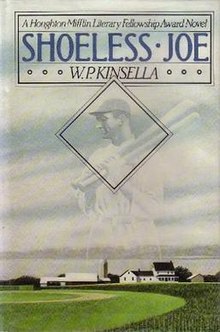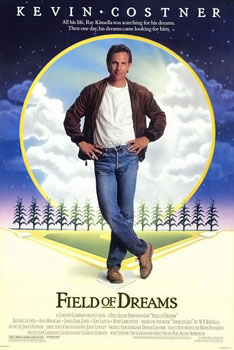
Field of Dreams is a 1989 American sports fantasy drama film written and directed by Phil Alden Robinson, based on Canadian novelist W. P. Kinsella's 1982 novel Shoeless Joe. The film stars Kevin Costner as a farmer who builds a baseball field in his cornfield that attracts the ghosts of baseball legends, including Shoeless Joe Jackson and the Chicago Black Sox. Amy Madigan, James Earl Jones and Burt Lancaster also star.

Joseph Jefferson Jackson, nicknamed "Shoeless Joe", was an American outfielder who played Major League Baseball (MLB) in the early 1900s. Although his .356 career batting average is the fourth highest in the history of Major League Baseball (MLB), he is often remembered for his association with the Black Sox Scandal, in which members of the 1919 Chicago White Sox participated in a conspiracy to fix the World Series. As a result, Commissioner Kenesaw Mountain Landis banned Jackson from baseball after the 1920 season. During the World Series in question, Jackson had led both teams in several statistical categories and set a World Series record with 12 base hits. Jackson's role in the scandal, banishment from the game, and exclusion from the Baseball Hall of Fame have been fiercely debated.
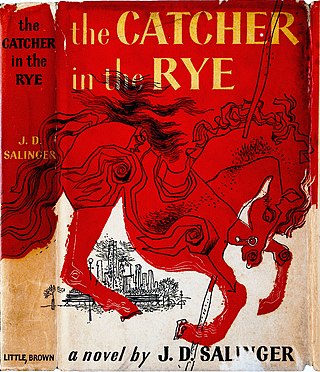
The Catcher in the Rye is a novel by American author J. D. Salinger that was partially published in serial form in 1945–46 before being novelized in 1951. Originally intended for adults, it is often read by adolescents for its themes of angst and alienation, and as a critique of superficiality in society. The novel also deals with themes of innocence, identity, belonging, loss, connection, sex, and depression. The main character, Holden Caulfield, has become an icon for teenage rebellion. Caulfield, nearly of age, gives his opinion on a wide variety of topics as he narrates his recent life events.
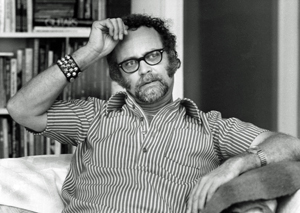
William Patrick "W. P." Kinsella was a Canadian novelist and short story writer, known for his novel Shoeless Joe (1982), which was adapted into the movie Field of Dreams in 1989. His work often concerned baseball, First Nations people, and Canadian culture.
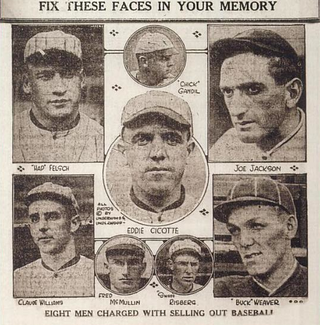
The Black Sox Scandal was a Major League Baseball game-fixing scandal in which eight members of the Chicago White Sox were accused of losing the 1919 World Series against the Cincinnati Reds on purpose in exchange for money from a gambling syndicate led by organized crime figure Arnold Rothstein. In response, the National Baseball Commission was dissolved and Judge Kenesaw Mountain Landis was appointed to be the first Commissioner of Baseball, given absolute control over the sport to restore its integrity.

Holden Caulfield is a fictional character in the works of author J. D. Salinger. He is most famous for his appearance as the lead character and narrator of the 1951 novel The Catcher in the Rye. Since the book's publication, Holden has become an icon for teenage rebellion and angst, and is considered among the most important characters of 20th-century American literature. The name Holden Caulfield was initially used in an unpublished short story written in 1941 and first appeared in print in 1945.

Raymond William Schalk was an American professional baseball player, coach, manager and scout. He played as a catcher in Major League Baseball for the Chicago White Sox for the majority of his career. Known for his fine handling of pitchers and outstanding defensive ability, Schalk was considered the greatest defensive catcher of his era. He revolutionized the way the catching position was played by using his speed and agility to expand the previously accepted defensive capabilities for his position. Schalk was elected to the Baseball Hall of Fame in 1955.

Oxbow is a town in the southeast of the province of Saskatchewan, Canada. It is located on the Canadian Pacific Railway and on Provincial Highway 18. It is approximately 58 kilometers west of Saskatchewan's border with Manitoba and approximately 26 kilometres (16 mi) north of the Canada–US border with North Dakota.

Archibald Wright "Moonlight" Graham was an American professional baseball player and medical doctor who appeared as a right fielder in a single major league game for the New York Giants on June 29, 1905. His story was popularized by Shoeless Joe, a novel by W. P. Kinsella, and the subsequent 1989 film Field of Dreams, starring Kevin Costner, and featuring Burt Lancaster and Frank Whaley, respectively, as older and younger incarnations of Graham.

The 1919 World Series was the championship series in Major League Baseball (MLB) for the 1919 season. The 16th edition of the World Series, it matched the American League champion Chicago White Sox against the National League champion Cincinnati Reds. Although most World Series have been of the best-of-seven format, the 1919 World Series was a best-of-nine series. MLB decided to try the best-of-nine format partly to increase popularity of the sport and partly to generate more revenue.
"The Laughing Man" is a short story by J. D. Salinger, published originally in The New Yorker on March 19, 1949; and also in Salinger's short story collection Nine Stories. It largely takes the structure of a story within a story and is thematically occupied with the relationship between narrative and narrator, and the end of youth. The story is inspired by the 1869 Victor Hugo novel of the same name: The Man Who Laughs.
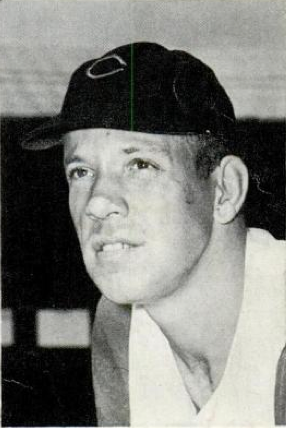
A "cup of coffee" is a North American sports idiom for a short time spent by a minor league player at the major league level. The idea behind the term is that the player was only in the big leagues long enough to have a cup of coffee before being returned to the minors. The term originated in baseball and is extensively used in ice hockey, both of whose professional leagues utilize extensive farm systems; it is rarely used in basketball or American football since neither the NBA nor NFL have implemented a true farm system.
The 1951 novel The Catcher in the Rye by J. D. Salinger has had a lasting influence as it remains both a bestseller and a frequently challenged book. Numerous works in popular culture have referenced the novel. Factors contributing to the novel's mystique and impact include its portrayal of protagonist Holden Caulfield; its tone of sincerity; its themes of familial neglect, tension between teens and society, and rebellion; its previous banned status; and Salinger's reclusiveness. The Catcher in the Rye has inspired "rewrites" which have been said to form their own genre. On the other hand, there are examples of similarities between the novel and other works that were not intended by their authors, which suggests that the novel is "present, at least spiritually, in ... any story line that involves quirky young people struggling to find their places in a society prone to reward conformity and condemn individuality."
“Both Parties Concerned” is an uncollected work of short fiction by J. D. Salinger which appeared in the 26 February, 1944 issue of The Saturday Evening Post.

The Iowa Baseball Confederacy is a 1986 novel written by Canadian author W.P. Kinsella. It is less well known than his novel Shoeless Joe, which came to prominence when it was made into the film Field of Dreams. Like in Shoeless Joe, baseball is at the heart of the novel, which uses magic realism to blend events and individuals past and present with the author's love of the game. However, it covers more themes than Shoeless Joe and it explores a greater number of plot lines.
"A Young Girl in 1941 with No Waist at All" is a short story by J. D. Salinger, published in Mademoiselle in May 1947. The story has not been published in any authorized anthology, but has appeared in the 1974 unauthorized collection Twenty-one Stories: The Complete Uncollected Short Stories of J. D. Salinger. The illustrator was Laura Jean Allen. The character of Ray Kinsella is seen as an early version of the character Seymour from Salinger's later work "A Perfect Day for Bananafish".
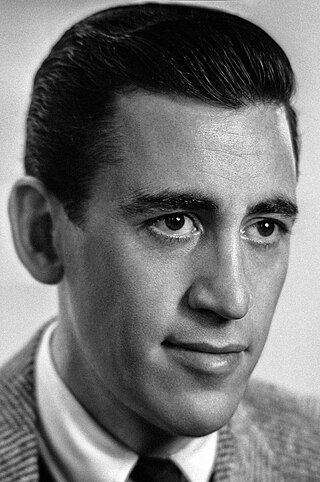
Jerome David Salinger was an American author best known for his 1951 novel The Catcher in the Rye. Salinger published several short stories in Story magazine in 1940, before serving in World War II. In 1948, his critically acclaimed story "A Perfect Day for Bananafish" appeared in The New Yorker, which published much of his later work.

If I Never Get Back is the 1990 debut novel of American writer Darryl Brock.
John David California was the pseudonym used by Swedish book publisher Fredrik Colting when on 7 May 2009 he published 60 Years Later: Coming Through the Rye in the United Kingdom.

The Art of Fielding is a 2011 novel by American author Chad Harbach. It centers on the fortunes of shortstop Henry Skrimshander and his career playing college baseball with the fictional Westish College Harpooners. The novel was nominated for the Guardian First Book Award, and was featured on several year-end lists.
